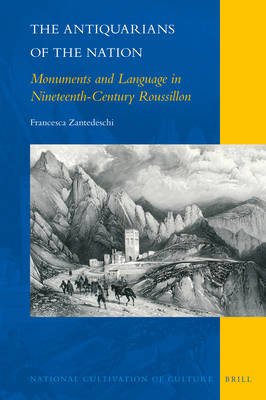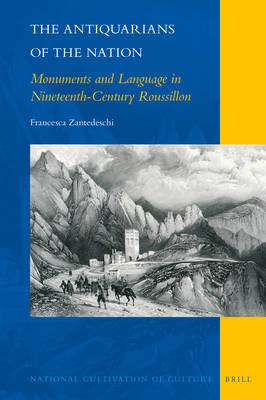
- Afhalen na 1 uur in een winkel met voorraad
- Gratis thuislevering in België vanaf € 30
- Ruim aanbod met 7 miljoen producten
- Afhalen na 1 uur in een winkel met voorraad
- Gratis thuislevering in België vanaf € 30
- Ruim aanbod met 7 miljoen producten
Zoeken
The Antiquarians of the Nation
Monuments and Language in Nineteenth-Century Roussillon
Francesca Zantedeschi
€ 207,95
+ 415 punten
Omschrijving
In the nineteenth century, the search for the artistic, architectural and written monuments promoted by the French State with the aim to build a unified nation transcending regional specificities, also fostered the development of local or regional identitary consciousness. In Roussillon, this distinctive consciousness relied on a basically cultural concept of nation epitomised mainly by the Catalan language - Roussillon being composed of Catalan counties annexed to France in 1659. In The Antiquarians of the Nation, Francesca Zantedeschi explores how the works of Roussillon's archaeologists and philologists, who retrieved and enhanced the Catalan specificities of the region, contributed to the early stages of a 'national' (Catalan) cultural revival, and galvanised the implicit debate between (French) national history and incipient regional studies.
Specificaties
Betrokkenen
- Auteur(s):
- Uitgeverij:
Inhoud
- Aantal bladzijden:
- 324
- Taal:
- Engels
- Reeks:
- Reeksnummer:
- nr. 16
Eigenschappen
- Productcode (EAN):
- 9789004368965
- Verschijningsdatum:
- 10/01/2019
- Uitvoering:
- Hardcover
- Formaat:
- Genaaid
- Afmetingen:
- 163 mm x 236 mm
- Gewicht:
- 635 g

Alleen bij Standaard Boekhandel
+ 415 punten op je klantenkaart van Standaard Boekhandel
Beoordelingen
We publiceren alleen reviews die voldoen aan de voorwaarden voor reviews. Bekijk onze voorwaarden voor reviews.








